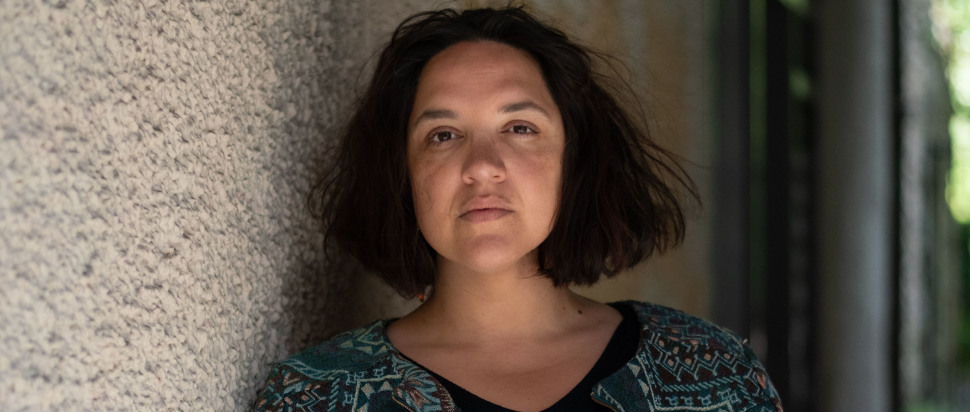Hannah Lavery and Natalie Ibu on Protest
Playwright Hannah Lavery and Director Natalie Ibu hope to inspire hope through action with a play for children and adults alike
At a time when our national rights to gather and protest are increasingly at risk, our livelihood, our joy, and our liberty seem constantly under threat. As theatre artists, it feels increasingly difficult – and increasingly urgent – to respond to an environment that resists depiction. I find myself asking what we can possibly do against such a strong tide. In Protest, a new collaboration by Fuel, Imaginate, Northern Stage and National Theatre of Scotland, playwright Hannah Lavery and director Natalie Ibu suggest an active, hopeful answer to that question.
Protest follows three school-aged girls as they confront different forms of marginalisation. The production is targeted at children eight and up and their families. "I wanted to write a play that I could take my children to," Lavery says, "That would engage me and provoke me, as well as my children."
The production, Ibu says, has a manifold purpose: "One of the big priorities for me is finding ways for theatre to feel part of everyone's lives every day. I think that we can be most successful with that by engaging young people and their families and inviting them into the theatre as early on as possible, so that it's not then a conversion process when they're adults – trying to persuade them that theatre, which has ignored them for decades, is now suddenly really important to them."
Ibu speaks about the divide between "children's theatre" and "grown-up theatre" – a distinction which, she continues, causes theatre to seem aloof, unattainable, to young people. With Protest, the all-female production team opens their doors to audiences at varying stages of life without judgement. But beyond getting audiences in the door, Ibu stresses the pertinence of the play's content for viewers of all ages: "It feels really important – [amidst] the impending climate emergency, as we reckon with different forms of oppression, with Black Lives Matter, with patriarchy and misogyny – that we find ways to help people think about the world now, and the world that they want to live in, and the world that they can help be a part of shaping. And it feels like that is not a question that only adults can answer."
Theatre, Ibu says, can be more than mere entertainment. "It's really important to us to find ways for people to feel like it's an important place for them to work out things about their life and about the world that we live in," she says.
The takeaway, Lavery says, should be more than just hope. "It's a play where they have small wins," she says, "And they may not achieve everything, but those little things are where the hope lies." Protest is about inspiring hope through action. Lavery says: "Young people are very aware of the world they are going to inherit and the world they live in. I want to write something that makes young people and their adults feel hopeful, like there's something they can do."
"We all think about the role that we can play in bringing about a just world," Ibu says. Protest posits that "what can sometimes feel like those 'adult' challenges around the glass ceiling and patriarchy and misogyny don't just start when you enter the working world. They don't just start when you become an adult. It starts from the moment you are born."
The lessons learned in Protest apply as strongly to adults as they do to children. It is a call for solidarity, not just within the world of the play, but across the theatre sector as a whole. It is a call, Ibu says, to "learn from the provocation" made by the three young protagonists – to "take the baton and apply it to the wider business of making the work."
Lavery also stresses the importance of solidarity across movements. "Though the things that we have to face feel overwhelming, we can do things, even if they're just little things in our own communities or our own friendship groups." Every action, no matter how small, has a place in a more hopeful world. "That's the kind of offering that felt worth writing about," Lavery says, "And worth writing about for me now, as well as for me when I was eleven."
Protest will visit eight venues throughout Scotland until 2 Jun, including a run at the Edinburgh International Children's Festival from 29-31 May
